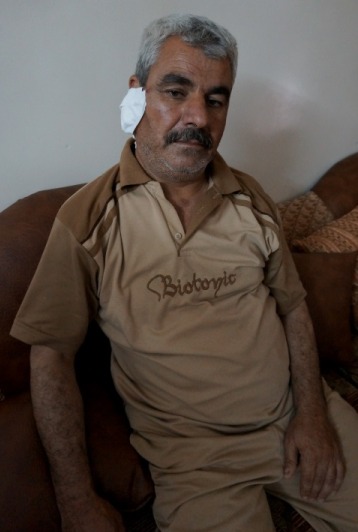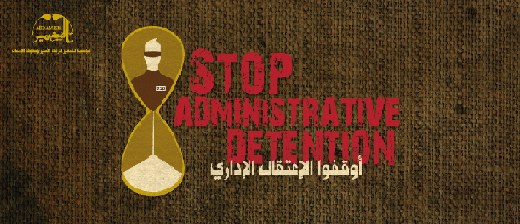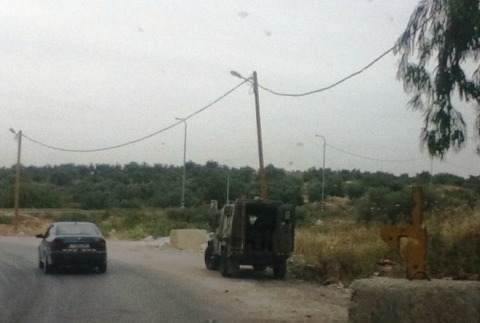Tag: Arrests
-
Asira Attacked 4 Nights in a Row
7th May 2014 | International Women’s Peace Service | Asira al-Qibliya, Occupied Palestine Israeli army raided the village of Asira al-Qibliya (south of Nablus) at 1 am on 5 May, arresting a 21-year-old, brutally assaulting his uncle, and terrorising the family’s children with attack dogs. Dozens of Israeli soldiers invaded Asira by foot, sneaking in from the backside of…
-
Update on Hunger Strikes: Administrative Detainees put in Solitary Confinement, Denied Salt Supplements
7th May 2014 | Addameer Prisoner Support and Human Rights Association | Ramallah, Occupied Palestine The latest wave of mass hunger strikes continue for the 14th day as Palestinian prisoners demand the end of the policy of administrative detention. Administrative detention is a procedure in which Palestinians are arbitrarily arrested and detained without charge or trial based…
-
Israeli army target children in Azzun
7th May 2014 | International Women’s Peace Service | Azzun, Occupied Palestine If the people of ‘Azzun seem nervous, they have a right to be. The town (population approximately 10,000) sits on crossroads – Qalqiliya is to the west, Nablus to the east, Salfit to the south and Tulkarem to the north. This is a junction that is vulnerable…



